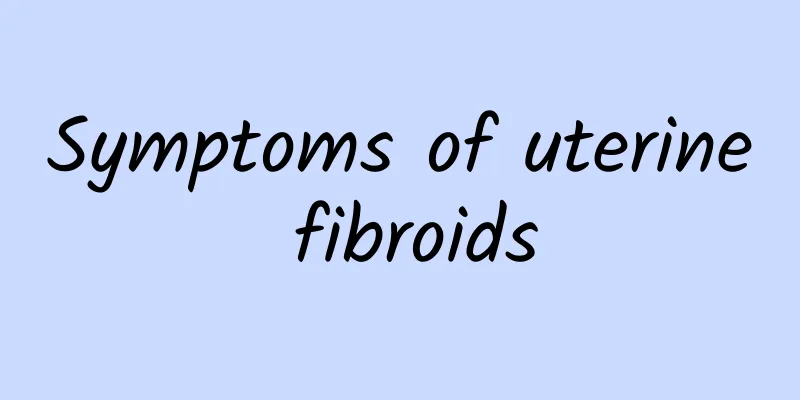What are the symptoms of ovarian cyst rupture?

|
A ruptured ovarian cyst may cause severe abdominal pain, vaginal bleeding, nausea, vomiting, and fever. Immediate medical attention is necessary as this condition can be life-threatening. A ruptured ovarian cyst requires comprehensive symptom evaluation and treatment, including medication and surgical intervention. 1. Severe abdominal pain: When an ovarian cyst ruptures, the patient often feels sudden and severe abdominal pain, mostly in the lower abdomen, and the pain may spread to the back or legs. The severity of the pain may affect daily activities, and medical help should be sought as soon as possible. The doctor may use imaging tests to determine the severity of the cyst rupture. 2. Vaginal bleeding: Some patients may experience irregular vaginal bleeding, especially after an ovarian cyst ruptures. The amount of bleeding is usually not large, but it may require special attention if accompanied by other symptoms. It is recommended to describe the bleeding in detail to the doctor when seeing a doctor so that effective evaluation and treatment can be carried out. 3. Nausea, vomiting and fever: In the case of a cyst rupture, an inflammatory reaction may occur in the body, leading to symptoms of nausea, vomiting and even fever. At this time, timely medical treatment can prevent the condition from getting worse. Treatment may involve the use of analgesics and antibiotics, and the specific plan needs to be formulated by the doctor based on individual circumstances. A ruptured ovarian cyst is a medical emergency that requires immediate medical attention. Staying alert and recognizing the symptoms can help with timely management. Your doctor may recommend medications, such as painkillers and antibiotics; in some severe cases, laparoscopic surgery is required. Medication and surgical management are determined on an individual basis, reiterating the importance of seeking medical attention promptly to prevent serious consequences. Patients should pay attention to body signals in their daily lives so that they can take timely action if they find abnormalities. |
<<: Does cervical hypertrophy affect life expectancy?
>>: What is the cause of postmenopausal cervical adhesions
Recommend
Preventing Sarcopenia for the Elderly - Three Good Ways and One Tip: Eat Healthy, Supplement Calcium and Protein
If the elderly want to live a happy life, they mu...
Symptoms of uterine fibroids that may occur in life
Among the many gynecological diseases, uterine fi...
Expert introduction: Several serious hazards of adnexitis
As women's social status improves, they have ...
You need to know what to pay attention to after abortion
Do you know what to pay attention to after an abo...
Choice of different treatments for hyperprolactinemia
The choice of different treatment methods for hyp...
What are the symptoms of Bartholinitis?
The onset of Bartholin's gland inflammation i...
TCM treatment for amenorrhea: Tiaojing Decoction
Li, 30 years old, had suffered from functional ut...
To create a perfect butt, Kim Kardashian squats every day
Hollywood has recently been swept by the squat ex...
What are the factors that cause vulvar leukoplakia?
Vulvar leukoplakia, what is vulvar leukoplakia? W...
Can I take donkey-hide gelatin if I have cervical adhesion?
Patients with cervical adhesion can eat donkey-hi...
What are the symptoms of uterine leiomyoma and the treatment of uterine leiomyoma
When it comes to the symptoms of uterine fibroids...
What causes cervical hypertrophy?
Cervical hypertrophy is a common disease for wome...
Is it better for your health to have an abortion or a medical abortion?
When facing an unexpected pregnancy, choosing bet...
Common symptoms of ovarian cysts
Ovarian cysts have no obvious symptoms in the ear...
Irregular vaginal bleeding is one of the early symptoms of ectopic pregnancy
For pregnant women, ectopic pregnancy has a great...









